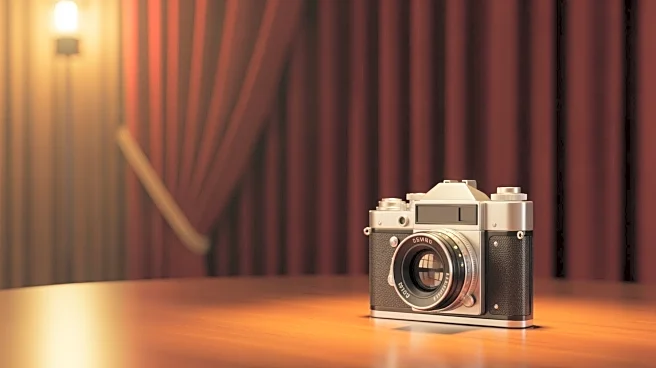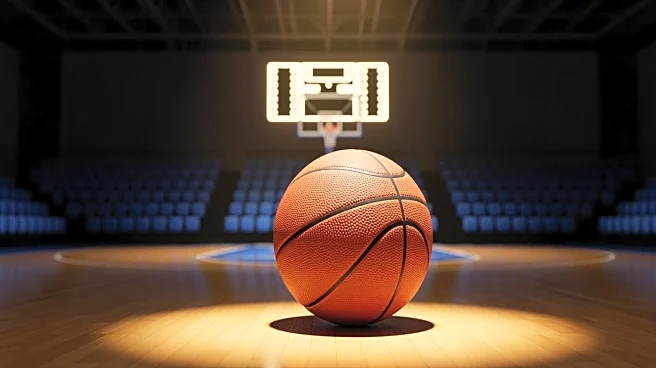What's Happening?
Sonny Fletcher, a wheelchair rugby player from Cliffe near Rochester, is featured in the latest 'This Girl Can' campaign, which aims to address the barriers disabled women face in accessing sports. Fletcher, who plays for Harlequins Rugby, highlights
the prohibitive costs associated with acquiring specialized sports equipment, such as a rugby chair priced at £8,000. The campaign, titled 'We Like The Way You Move,' seeks to challenge stereotypes and redefine media portrayals of women in sports, focusing on under-represented groups including women of color and pregnant women. Fletcher's involvement underscores the financial and logistical challenges faced by disabled athletes, as she travels 90 minutes each way to participate in her sport.
Why It's Important?
The campaign sheds light on the significant barriers that prevent disabled women from participating in sports, emphasizing the need for greater accessibility and representation. By highlighting the financial burden of specialized equipment and the lack of local sports clubs, Fletcher's story brings attention to the systemic issues that hinder inclusivity in sports. This initiative is crucial in promoting diversity and challenging existing stereotypes, potentially influencing public policy and encouraging investment in accessible sports facilities. The campaign's focus on under-represented groups aims to foster a more inclusive environment, which could lead to increased participation and visibility for disabled athletes.
What's Next?
The 'This Girl Can' campaign is expected to continue its efforts in promoting inclusivity and challenging stereotypes in sports media. As the campaign progresses, it may inspire further discussions on funding and accessibility for disabled athletes, potentially leading to policy changes or increased support from sports organizations. Stakeholders such as government agencies, sports clubs, and advocacy groups may respond by exploring ways to reduce financial barriers and improve access to sports facilities for disabled individuals. The campaign's impact could also encourage other initiatives to address similar issues in different sectors.
Beyond the Headlines
The campaign's use of AI analysis to examine representation in sports media highlights the technological advancements in addressing social issues. By analyzing 4,000 public photos from sports and leisure facilities, the campaign reveals the lack of visibility for women with disabilities, pregnant women, and women of color. This approach not only underscores the importance of representation but also demonstrates how technology can be leveraged to identify and address gaps in inclusivity. The findings may prompt further research and initiatives aimed at improving media portrayals and fostering a more diverse and inclusive sports culture.
















